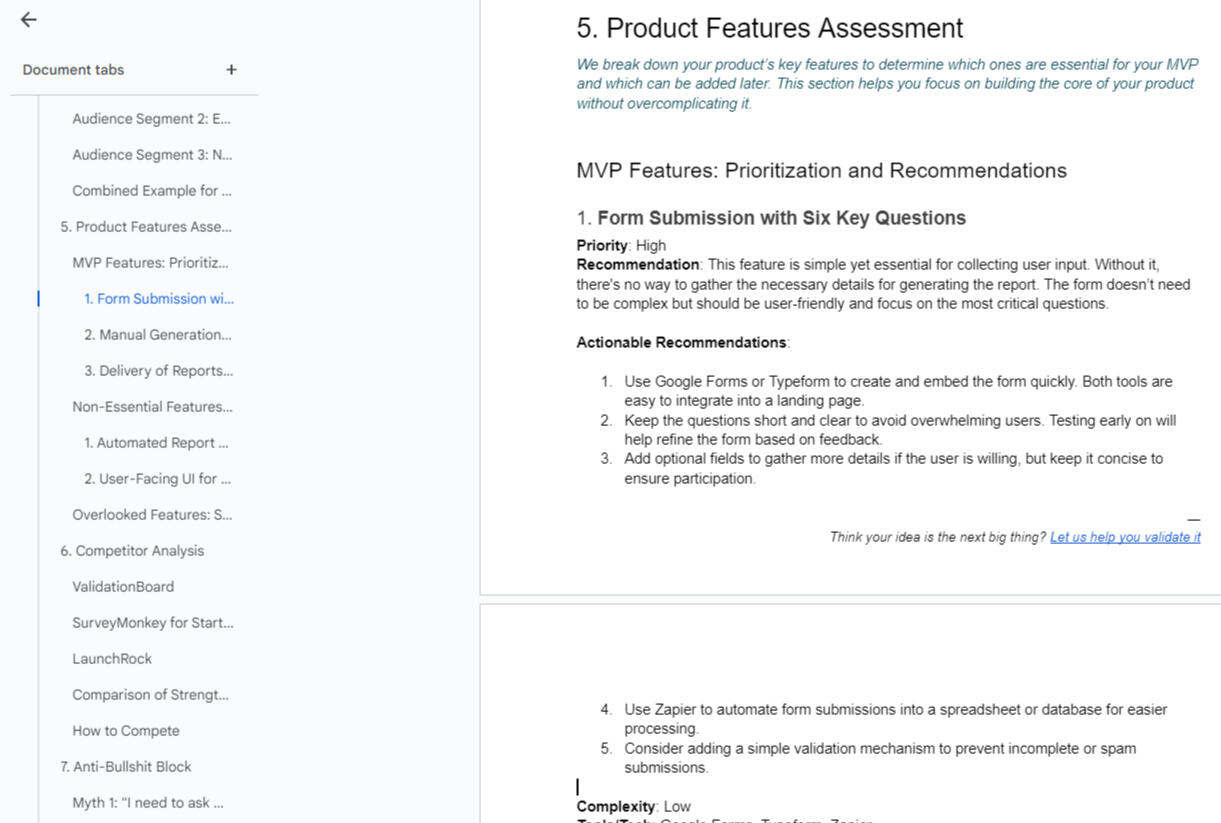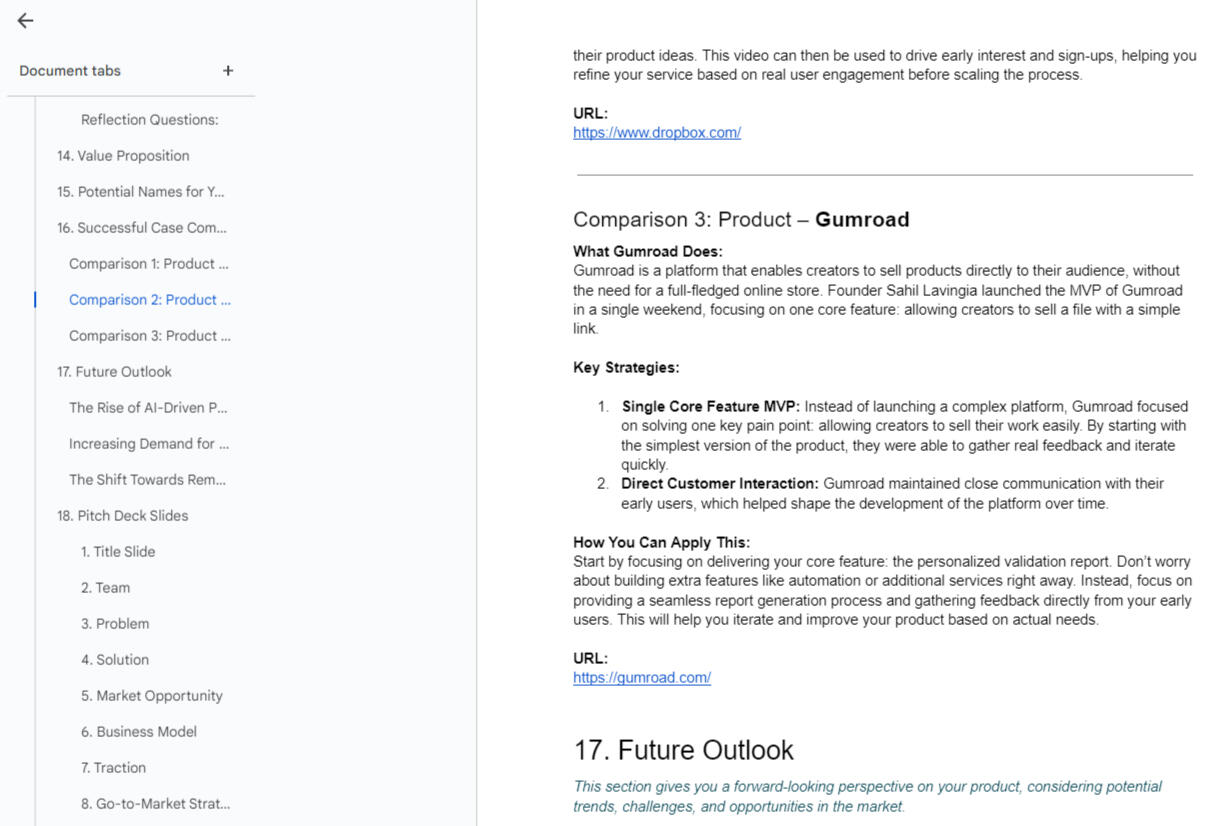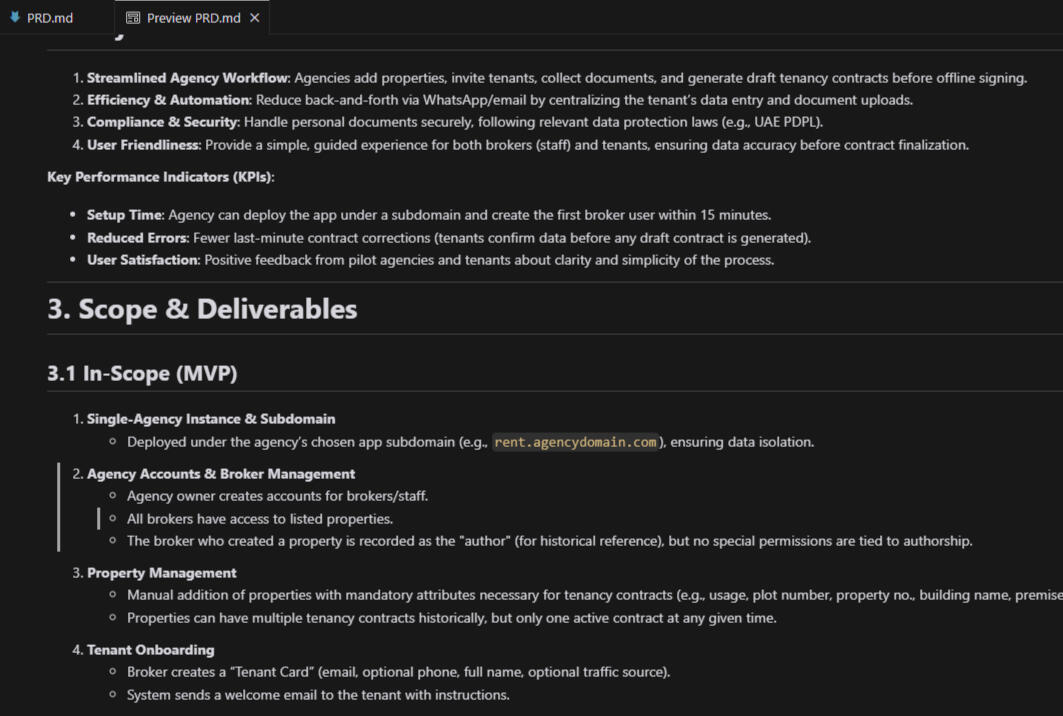Got a Product Idea But Not Sure If It’s Worth Building?
Right now, countless founders waste time and money building products nobody need. They dive into development without knowing if their idea solves a real problem, leaving them frustrated when it doesn't resonate.
With The Hypothesis Validation Framework, you’ll have a clear plan in a week. I’ve made those mistakes before and would love to help you avoid it.
What's Inside?
A clear roadmap for validating your idea.
Actionable insights from real users or stakeholders.
A prototype to kickstart feedback and testing.
Focused on lean, practical results.
Proven tools and frameworks that deliver results quickly.
Who’s This For?
Founders who want to test ideas without overloading their team.
Startups exploring side projects or internal tools.
Non-technical founders looking for a guided approach to validation.
Why Choose The Framework?
Founder-to-Founder Help
As an indie hacker and founder myself, I’ve been where you are. I know what it’s like to juggle limited time and resources while chasing a great idea. My solution is built around practical, lightweight validation—not guesswork.
Used by 100+ Founders (325 reports created)
This solution used by over 100 founders, acting as their unofficial cofounder to refine ideas before building. With all the templates, tools, and proven methodologies already in place, I can make this process fast and effective.
Stay Focused
I take care of everything, from analysis to prototyping, and only after creating a prototype and gathering positive feedback from potential customers, should your team consider jumping into the development phase.
How Does It Work?
Phase 1: Idea Analysis Document (IAD) - 2-3 days
We’ll start by breaking your idea down to its essentials:
Problem Statement: What problem are you solving, and for whom?
Market Context: Who are your competitors? How is this different?
Customer Profile: Who’s your target audience, and what do they need?

You’ll receive a concise document (usually ~50-60 PDF pages) highlighting the potential of your idea, any red flags, and real recommendations.

Phase 2: Product Requirements Document - 2-3 days
Once the idea looks solid, I’ll map out exactly what needs to be built:
Essential Features: The minimum set of features to test your idea.
User Stories: How your customers will interact with the product.
Success Metrics: We’ll define measurable goals.

This document covers all technical details, saving your CTO or team from extra work. Drawing from my experience as a systems architect, I create a detailed plan for your future product if we successfully validate the initial version with potential customers.
Phase 3: Prototype Testing - 1-2 weeks
If you’re ready to move forward, I’ll create a lightweight prototype to gather feedback:
Clickable Mockups: Visualize the product before it’s built.
User Testing: Test with your target audience to validate assumptions.
Iterative Feedback: Refine based on real-world responses.
For prototyping and development, I work with technologies such as Next.js (TypeScript), Golang + HTMX, or Ruby on Rails—choosing the best fit for your specific needs. Essential parts of the business logic will be covered with tests and best practices in software development.
Frequently Asked Questions
How long does the process take?
The entire process typically takes 1-3 weeks, depending on the complexity of your idea and how quickly we can gather feedback. I prioritize speed without compromising quality.
What if I don’t have a development team?
No team? No problem! I handle everything from analysis to prototyping, so you can validate your idea without needing an in-house team.
How much does this cost?
Every idea is different, so pricing varies depending on your specific needs. Reach out for a free consultation, and we’ll discuss a plan designed to your budget.
What industries do you specialize in?
While I’ve worked with founders across various industries, my expertise lies in SaaS, internal tools, Web3, and customer-facing web applications. However, I’m happy to explore your unique idea, no matter the industry.
What happens if the idea isn’t validated?
If we discover your idea isn’t viable, that’s actually a win! It saves you time, money, and effort. Plus, we’ll work together to explore alternatives or refine your concept for better validation.